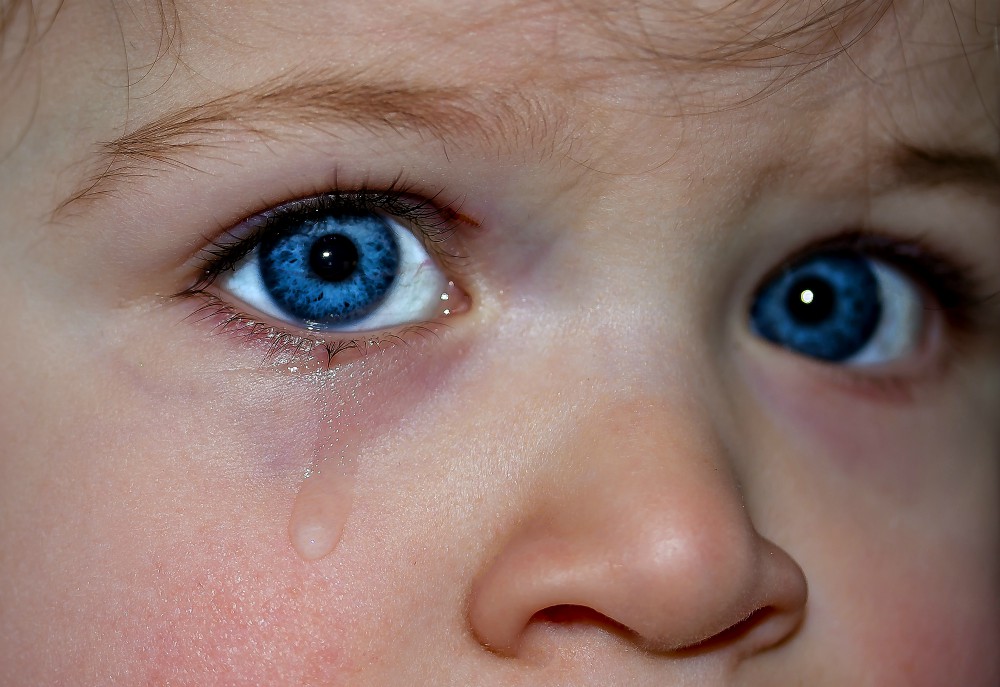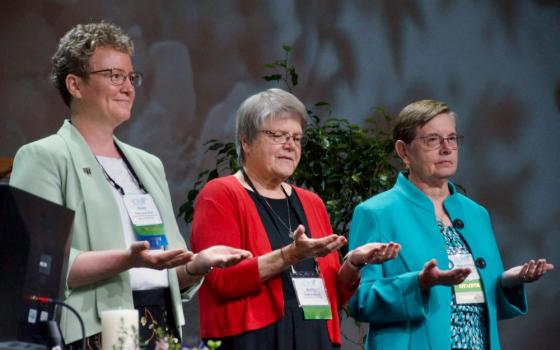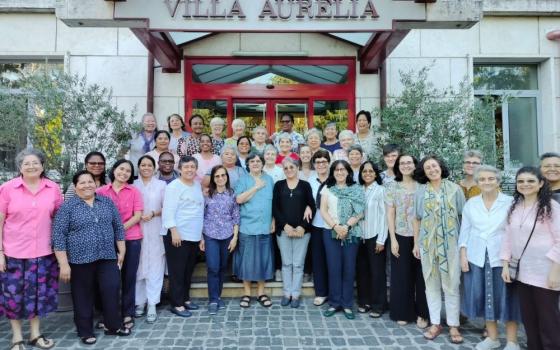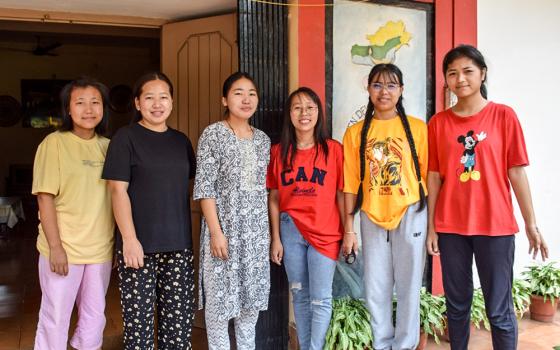
(Pixabay / Myriam Zilles)
"Why are you crying?" I asked my 3-year-old niece.
"I'm not cwying," she replied through frustrated sobs. "I am twying to make you unduhstand because you do not unduhstand me."
What I was too dense to "unduhstand" was that when she told me she wanted a red popsicle, what she meant was that she wanted grape. She was still learning her colors, and although she was crystal-clear about what was in her own mind and will, it didn't translate well into what I was "unduhstanding" and how I was able to respond to her expressions of need and desire.
Logic played no role in the ensuing conversation, nor did mercy. Even when she had the grape popsicle firmly in hand, the tears did not subside. Indeed, they could not, because their source was not popsicle flavors; their source was my lack of "unduhstanding."
So it is with God and us sometimes. I know exactly what it is that I want, and I try my best to communicate to him precisely the intention, sentiment, or need. When God "hands me back" something other than what corresponds to what I had expressed, I feel like cwying and saying, "Why do you not unduhstand me?!" Why does God insist on giving me what I need instead of what I ask for?
COVID-19 is teaching us a whole lot of things about need, about fear and hope, about certainty and uncertainty, about ourselves, and about our relationship with God. One of the more surprising lessons I'm learning about myself and about God is that there are different kinds of tears that spring up as we journey through these days together. I suppose I knew this already, but it feels like a new understanding born out of this utterly unique context. Here is what I've been noticing:
Tears come from pain. Watching the news, listening to friends and family experiencing loss, knowing about the rising numbers in unemployment, witnessing the growing hunger and desperation of so many, I find tears often welling up and brimming over. There is so much suffering, so much loss, so much pain right now all around us and within. We are hurting and so we weep.
Tears come from fear. The uncertainty of how much longer we must shelter in place, the scary reality of financial or work insecurity, the dread that "getting back to normal" might never happen — all of this can paralyze us and leave us weeping silently in the dark, needing desperately to have an outlet for the fear, and yet equally desperate to spare our loved ones from more anxiety by exposing our own gnawing fright. We are afraid and so we weep.
Advertisement
Tears come from anger. When human realities seem to be eclipsed by politics or greed, when the food so desperately needed by some is rotting in the fields of others, when images appear of medical professionals pleading for help and much-needed supplies, I feel red-hot tears of anger crying out for compassion, justice and a collective commitment to the common good. We are angry and so we weep.
Tears come from joy. An unexpected bouquet is dropped off at the front door. A phone call comes from a childhood friend with whom I have not had a decent conversation in decades. A YouTube video of virtual choirs or a lighthearted exchange about homeschooling woes comes across my screen. The colors of spring and the beauty of the sky remind me of the unrelenting nature of life and renewal. Tears come swiftly with a smile and a deep sigh of gratitude. We are joyful and so we weep.
Tears come from relief. Finding out a loved one who has been hospitalized is coming home, hearing that the son-in-law who was furloughed still has health benefits, seeing the curve flatten — these things relieve our pent-up worry and well-justified anxieties, and the unburdening often releases a stream of tears. We are relieved and so we weep.
Tears come from beauty. I look at the delicate pink dogwood framed against a deep blue sky, I listen to Pope Francis' words in an empty St. Peter's Square, I listen to Yo-Yo Ma play Mozart in his series "Songs of Comfort." The sheer beauty of life and love overwhelms me and serves as a powerful antidote to the daily weight of uncertainty and difficulty, and as I allow the beauty to wash over me, the tears come. We experience grandeur and beauty and so we weep.
Tears can come from nowhere. Then, for no apparent reason, with no apparent catalyst, I find myself standing over the dishwater or digging through the garden or scrolling through Facebook posts, and the tears just stream. They come without drama or even affect, they come without thought or consciousness. But they come. We experience our humanity and the realities of life and it makes us weep sometimes.
The source of our tears varies, but their destination remains the same. Our tears bring us to the embrace of God. God it is who holds us, cradling us in our fears; God it is who receives our tears as fragile offerings of trust and hope; God it is who stays right here with us, even when we are still snuffling over our popsicles. "It wasn't about the popsicle itself," we seem to say. "It was about making sure you still know me."
And the response? "I have loved you with an everlasting love; you are mine. I will never leave you" (Jeremiah 31:3; Isaiah 49:15).
As the river is promised to the sea, so are we promised to our God.
[Virginia Herbers is an Apostle of the Sacred Heart of Jesus who is director of spiritual formation at St. Louis University. She has a master's degree in pastoral studies and has ministered in education at both the elementary and high school levels in Connecticut, New York, Missouri and Taiwan.]




